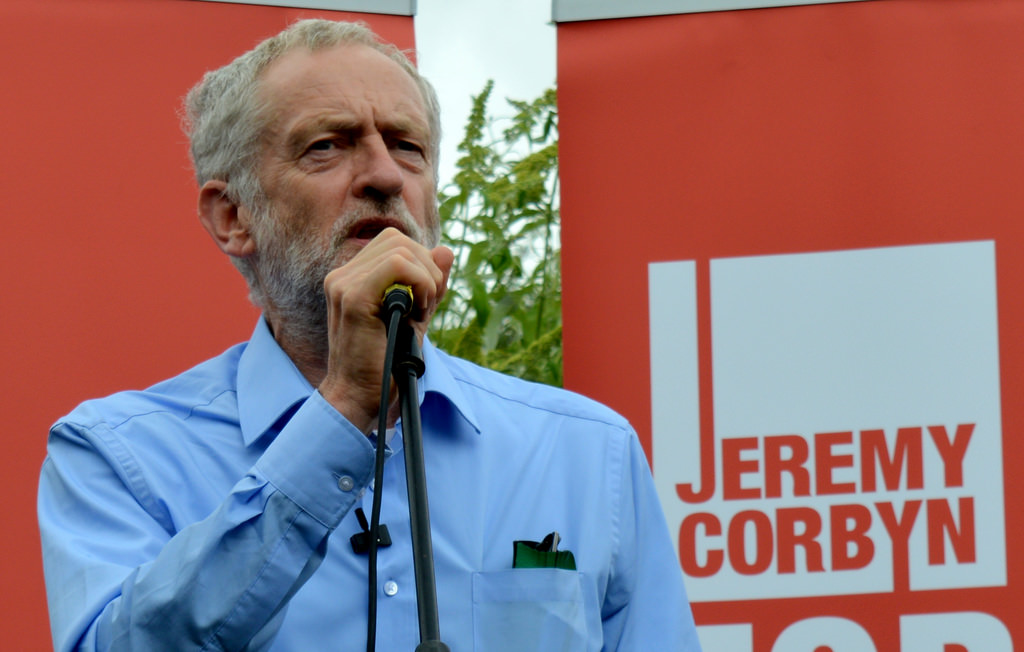![]()
By David Yarrow and Sean McDaniel
Jeremy Corbyn, a rebellious left-wing MP who remained on the fringes of the UK’s Labour Party for over thirty years, has stormed onto the political scene and won the party’s recent election by a landslide. Winning an enormous 59.5% of the vote in a four-way contest, Corbyn’s victory gives him an unprecedented mandate from the Labour Party’s members and affiliated supporters. In what is widely seen as a rejection of the New Labour years, Labour has just elected one of the most left-wing leaders in its history. Corbyn’s campaign promised ‘a new kind of politics’ and, after Labour’s dismal display in the recent UK general election in May 2015, there was clearly appetite amongst its members and supporters for radical change. But what does Corbyn’s victory mean for Labour? This article takes a look at Corbyn’s policy platform and his broader approach to ‘doing politics’. It highlights how his rise as Labour’s new leader presents a number of paradoxes and challenges, yet also sows the seeds for a potential renewal of British politics.
Corbyn’s Policies
The starting point for understanding Corbyn’s appeal is his anti-austerity stance. Unlike his rival candidates, Corbyn’s economic programme (or ‘Corbynomics’) seeks to end austerity in order to pursue a growth-led recovery based on public investment. In what turned out to be the major turning point in the campaign, Corbyn was the only candidate who voted against the Conservative government’s welfare bill, which would further slash welfare spending by £12 billion. Corbyn’s decision to stand against the bill, in contrast to his rival candidates who abstained from voting, was indicative of his wider policy platform which seeks to move away from what Corbyn and his supporters see as Labour’s accommodation of ‘neoliberalism’ since the 1990s.
In what turned out to be the major turning point in the campaign, Corbyn was the only candidate who voted against the Conservative government’s welfare bill, which would further slash welfare spending by £12 billion.
His most controversial economic policy has undoubtedly been his idea for ‘People’s Quantitative Easing’, contrasted with the Bank of England’s quantitative easing (QE) which is utilised not to stabilise the balance sheets of the banking sector, but to create a new National Investment Bank to fund large scale public investment projects. The idea has been criticised for its potential to increase inflation while also seeming to be somewhat unnecessary at a time when government borrowing in the UK is extraordinarily cheap. Nevertheless, part of the policy’s political value is that it provides Corbyn with a new economic lever in a period of seeming fiscal constraint, allowing him in part to sidestep the dominant political discourse surrounding deficit reduction while pledging to make important investments. Furthermore, it does so in a language which appeals to people’s dissatisfaction with the ‘politics as usual’ approach. Historically, it is this approach that has underpinned previous rounds of QE which were used to prop up the crisis-stricken banking sector and inflate the value of financial assets held by the richest members of society.
Alongside his plans for a growth-led, high-investment path to economic recovery, Corbyn’s programme offers a number of other policies that radically shift Labour to the left. For instance, Corbyn’s programme pledges to seek ‘tax justice’, clamping down on tax avoidance and evasion to the tune of £120 billion and reviewing the £93 billion corporations receive in tax incentives, while also increasing the income tax rate for those within the highest bracket (from 45% to 50%). Some of Corbyn’s other ideas include scrapping university tuition fees, currently £9,000 per year, and instead creating a National Education Service—based upon the National Health Service model—which would be universal and free to all at the point of use. He also pledges to renationalise Britain’s railways (privatised under the Conservative government of John Major in the 1990s), heavily regulate the energy market and introduce rent controls. His programme, moreover, is seemingly more open to internal debate: Corbyn has promised to ‘re-democratise’ policy-making within the party and transform Labour into a more open and inclusive movement.
Electoral Prospects, Image and the Challenges Ahead
Despite all this promise of a ‘new kind of politics’, Corbyn’s policy programme has come under heavy criticism (from the right within his own party as well as by the Conservatives) as representing nothing more than a throwback to the outdated socialism of the 1970s and 80s. His rise, therefore, presents us with a number of paradoxes: Corbyn is apparently a left-wing relic, who is simultaneously the messianic herald of a fresh new way of doing politics; meanwhile it is the architects of ‘New Labour’, the serial modernisers, who are gazing back nostalgically at 1997. It is these pioneers of spin and slick presentation who now criticise Corbyn’s rhetoric as idealistic, while in reality it is characterised by a down-to-earth earnestness bordering on the mundane. What is old-fashioned about him—his fashion sense, the fact he seems to believe what he says and does not speak in bland soundbites—is also what appears fresh and novel. His future success may well be determined by how these narratives evolve: can he present himself as a new face, or is he seen as shackled to Labour’s trade union-dominated past and the memories of industrial decline that dwell in the minds of many voters?
Corbyn is apparently a left-wing relic, who is simultaneously the messianic herald of a fresh new way of doing politics.
It is important to note that a warm reception to Corbyn’s victory has come from similar insurgent left-wing movements around Europe in the past few days. Spain’s Podemos leader Pablo Iglesias tweeted his congratulations to Corbyn and Yanis Varoufakis, ex-Syriza Minister of Finance, confirmed plans to hold talks with Corbyn’s team to the BBC. Corbyn’s radical new Labour may have won admirers amongst the new leftist parties of Europe, but this allegiance represents another potential challenge to the Corbyn era. Whilst the rise of Podemos and Syriza and their youthful, charismatic leaders has brought PSOE and PASOK, Labour’s traditional European sister parties, to the brink of death, Corbynmania has been a revolution from within. Undoubtedly, this process has been helped by the UK’s ‘First Past the Post’ electoral system (which discriminates against smaller, newer parties), yet nonetheless, its impact will be keenly felt both within the Labour Party and across the British political landscape in the coming months.
Perhaps the most immediate challenge arises from Labour’s position on the Europe Union. Corbyn’s natural Euroscepticism chimes with that of the new radical left in Europe, yet poses real issues for the Labour Party internally, which has been committed to the EU for decades and has been a cause for concern for many more moderate Labour MPs. Though now pledging to campaign to remain in the EU and pushing for a more ‘social Europe’, Corbyn has indicated that this could change based upon Cameron’s renegotiation of Britain’s membership terms. How Labour’s position on Europe evolves over the coming months is just one aspect of Corbyn’s fascinating rise to the top, which could still have fundamental implications for both the Labour Party and Britain’s relationship with Europe.
Finally, there is the issue of Scotland, which will be crucial to the success or failure of the Corbyn project. The rise of the Scottish Nationalist Party (SNP), which took 40 seats from Labour when it won 50 of 51 seats in Scotland at the last election, appears to be as much about positivity, identity and grass roots community organisation as it is about nationalism and independence. Its leaders past and present, Alex Salmond and Nicola Sturgeon, have gained support by presenting themselves as outside the London-based ‘Westminster bubble’, whilst they advocated policy positions to the left of Labour under Miliband: opposing austerity and privatisation and campaigning for nuclear disarmament and renewable energy. Now, Corbyn has energised Labour activists with much of the feel-good factor which characterises the SNP and has adopted a policy agenda even more to the left than the SNP’s. The crucial question to be answered over the coming months is whether this will be enough to win back the Scottish electorate, or whether Scottish nationalism has become a permanent feature of the UK electoral landscape, immune to the positioning of the Labour Party. If that is the case, and the SNP are here to stay, it is likely that Corbynmania will never be given the chance to evolve into something more, whatever its impact in the rest of the UK.
How Labour’s position on Europe evolves over the coming months is just one aspect of Corbyn’s fascinating rise to the top.
A New Kind of Politics?
Stepping back from the details of specific policies and electoral dynamics, how might we comprehend this bewildering new reality at a deeper level? How are we to unravel the paradoxes of Corbyn’s rise, and what do they mean?
Answering these questions partly involves distinguishing Corbyn’s mode of politics from the specific policy proposals he is setting out. Although some say Corbyn’s radical leftist platform is exactly what Labour needs, we should not necessarily think in terms of ‘left’ and ‘right’ when trying to comprehend the rise of Jeremy Corbyn. We should also consider technological change and what this is doing to political communication structures: the old ‘hierarchical’ politics dominated by a few powerful newspaper barons is being replaced by decentralised or ‘networked’ forms of anti-politics, which often emerge in response to specific issues and resist centralised control and standardisation. This change is potentially a threat to both the old forms of media management and spin which dominate the thinking of party elites in both the Conservative and Labour Parties, and to the forms of corporatist industrial relations and Keynesian macroeconomics, centred on the nation-state, which Corbyn advocates.
This is perhaps the key to understanding the paradoxical nature of his rise, as well as that of other radical European social democratic parties during the last few years. They often reflect this trend in their communication styles and party management, but have not yet fully reflected this trend in the renewal of their policy platforms
Corbyn is moving away from something that a growing majority of the population despise. That much is very clear. He is moving away from a technocratic and homogenised political culture orchestrated by a corporate media elite which has dominated Western democracies since at least the 1990s. This move is not going to be halted: it is the natural result of a generation which has grown up with social media and which places great value on horizontal rather than hierarchical structures of communication and organisation. This is the world of crowdsourcing, Twitter and change.org, where Corbyn—ever the non-conformist and the rebel—feels strangely at home, despite his advancing years.
Although some say Corbyn’s radical leftist platform is exactly what Labour needs, we should not necessarily think in terms of ‘left’ and ‘right’ when trying to comprehend the rise of Jeremy Corbyn.
But what is he moving towards? This is a much more opaque question. If we separate his anti-political mode of campaigning and his democratisation agenda from his specific policy proposals, we find these two aspects of his politics potentially in contention with each other. If he genuinely democratises Labour Party management, if he turns Labour into a more open and inclusive grassroots movement, as he pledged to do during the leadership campaign, then we will not end up with the policy agenda he campaigned on. Neither will we end up with a return to Blairism. We are likely to instead end up with something new and unpredictable which, because it is in touch with people’s real-life experiences, is likely to be more relevant and could well form the basis of genuine social democratic renewal. However, it is also likely to be less polished, less coherent, less slick. This, then, is perhaps the question: with all this enthusiasm for renewing politics, are people really willing to live with the new forms of political reality, which result from this process: unstable, sometimes contradictory, messy, committed, and alive?
David Yarrow is a PhD candidate at the University of Warwick. He is interested in how and why our visions of ‘the economy’ and ‘society’ change through time.

Sean McDaniel is also a PhD candidate at the University of Warwick. His research is focused on the politics of social democracy in post-crisis Europe.




